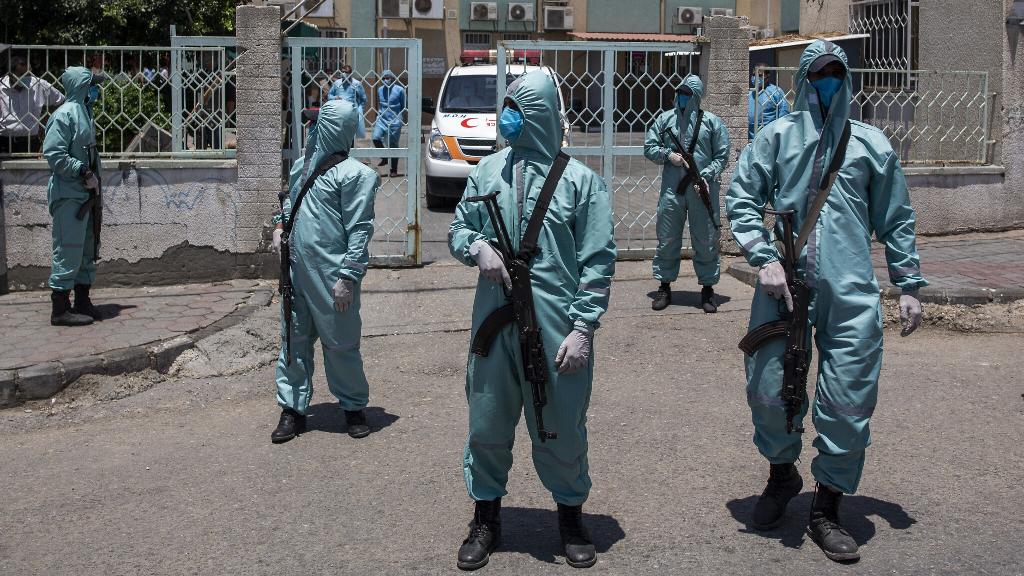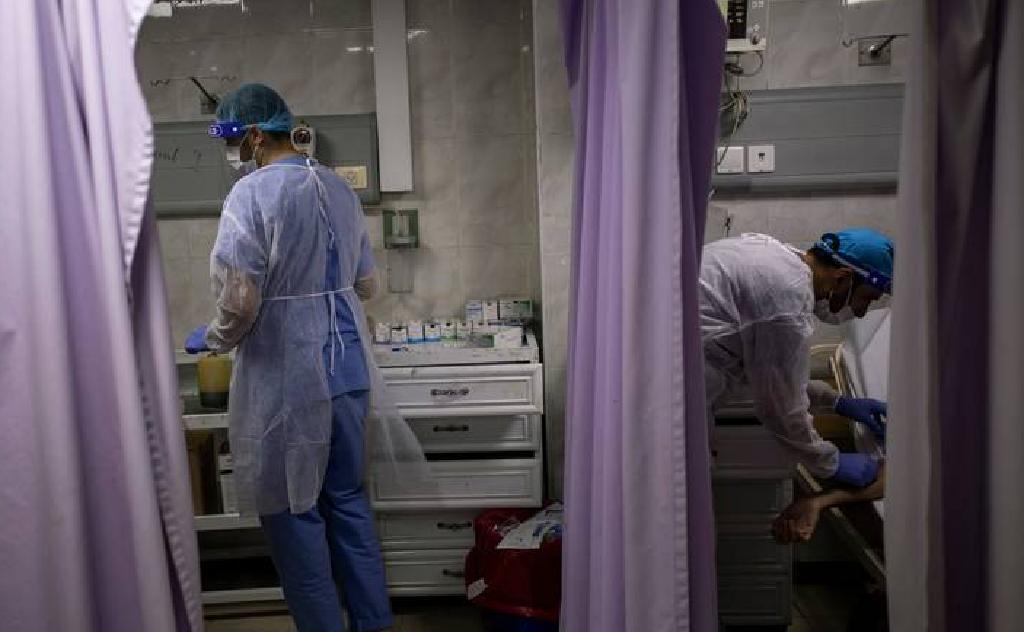The last few weeks have been turbulent in the Gaza Strip, and not solely due to the security situation.
In a mere matter of days, the Palestinian enclave has transformed from one of the "cleanest" in the world in terms of coronavirus to a region whose people are terrified of losing control of the contagion.
The situation worsened shortly after the discovery of the first few patients within the Strip. Two weeks ago there were only four confirmed cases, today there are approximately 1,050 new coronavirus patients inside Gaza.
Everyone in Gaza knows that only some people have been tested thus far and that the number of active patients is most likely much larger than initially revealed - thanks to Hamas' inability to effectively tackle the crisis.
The threat of the contagion cropped up in Gaza about six months ago, but was dealt with successfully by the Islamist group that rules the Strip.
Now, the contagion has returned more strongly and more potently than before.
This is not a "Palestinian problem." The spread of the contagion in Gaza will have dire strategic ramifications for Israel on the civil, political and security levels – so much so that Israel will be forced to act in order to stem the surge of morbidity in the enclave.
The main goal right now is to avert a humanitarian disaster in Gaza, a scenario that now seems more likely than ever, which will surely aggravate the lives of its residents whose are already suffering from ongoing challenges.
Yet, the looming crisis in the enclave might present a strategic opportunity for Israel to bring back home bodies of the two fallen soldiers and the two Israeli captives being held for ransom by Hamas.
A similar window opened briefly six months ago, when Hamas leader in Gaza Yahya Sinwar expressed his willingness to strike a deal in exchange for assistance in dealing with the pandemic.
5 View gallery
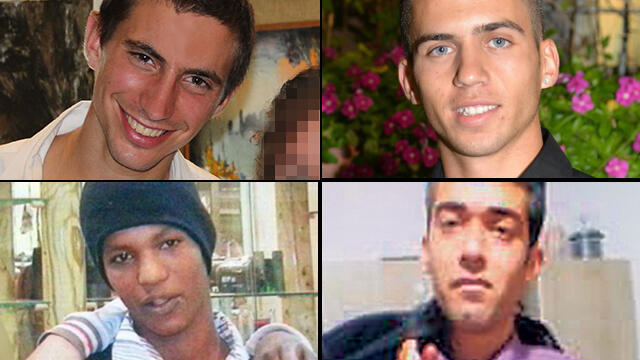

Clockwise from top left: Fallen soldiers Hadar Goldin and Oron Shaul and Hamas captives Hisham Al-Sayed and Avera Mengistu
This window of opportunity has now reopened thanks to the rising fear among Hamas members and indeed all Gazans of an impending crisis.
Now is the time for Israel to make its message clear via mediators and public statements: Aid to the Strip will be given only once Hamas softens its stubborn positions on the issue of the Israeli fallen soldiers and captives it has in its possession.
This is a message the leaders of Hamas need to hear clearly, but one that should also be heard and acknowledged by the enclave's population through public channels and social media.
5 View gallery
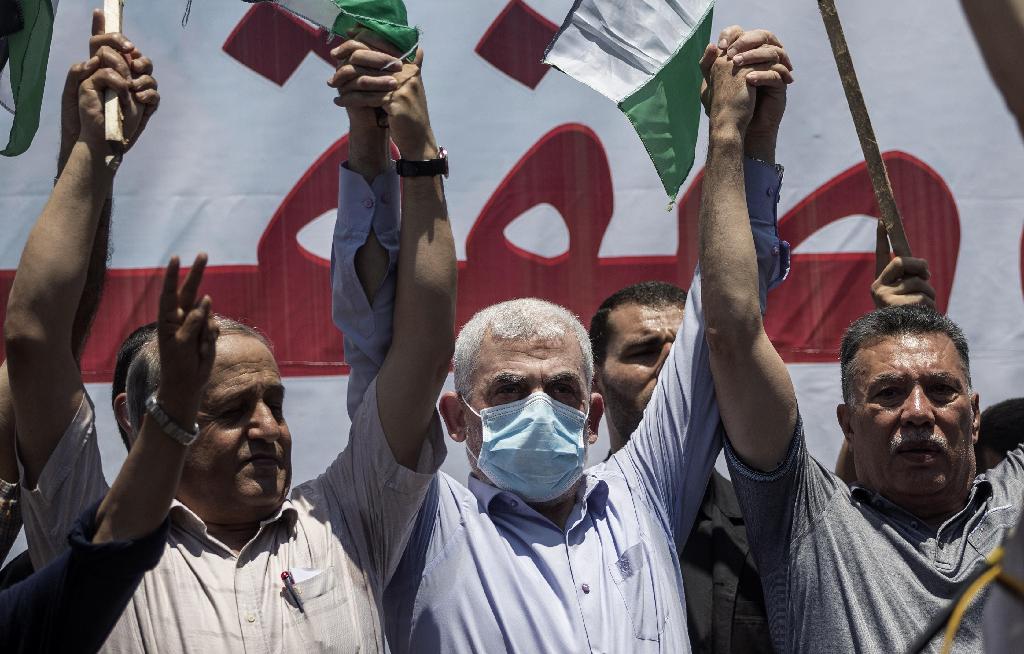

Hamas leader in Gaza Yahya Sinwar, center, attends a protest over Israeli plans to annexation of parts of the West Bank in July
(Photo: AP)
Gazans need to understand there is a direct correlation between Hamas' actions over the bodies of the soldiers and the two captives and the worsening living situation in the Strip, the latter of which the terror group fears will boil over and explode into a massive display of civil unrest.
Israel must be guided by humanitarian principles and provide assistance to the residents of the Gaza Strip, but it must also demonstrate the same consideration towards the families of the fallen and the missing.
The actual aid to Gaza should not be come with conditions, but its scope should.
5 View gallery
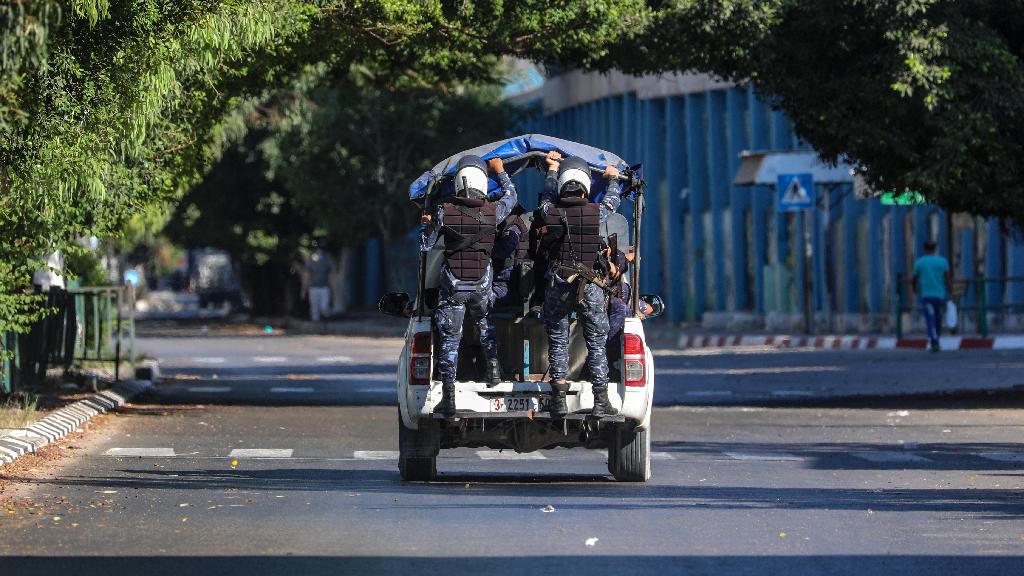

Hamas security officials patrol empty streets in Gaza during the coronavirus pandemic
(Photo: EPA)
The people of Gaza must understand that the level of the aid given by Israel will be driven by the level of Hamas' flexibility, and that the organization's traditional ideological rigidity is putting their lives in danger.
The coronavirus crisis in the Strip might serve as an opportunity for Israel to formulate a new and more binding agreement with Hamas, which will include the issue of the fallen troops and the missing – an issue that was previously excluded from any agreement for fear it may torpedo negotiations.
Michael Milstein is the Head of the Palestinian Studies Forum at the Moshe Dayan Center for Middle Eastern and African Studies.


